Description
Women SOPACDI
Women Producer Program at SOPACDI:
These specific offerings come from a group of 51 pygmy women who live and farm in the villages of Mishebere and Ruhunde in the Kahele territory. Historically, Pygmy people have faced terrible discrimination and disenfranchisement, including being forced into slavery and/or low-paying work. SOPACDI has started this project to source and keep separate coffee from this group of growers in order to provide them a better income from specialty coffee as well as more financial independence and autonomy. The producers each own an average of 0.5 hectares and deliver coffee in cherry form to the washing station. There is a price premium paid directly to these women farmers to use as they see fit.
From SOPACDI:
We are over 5300 farmers from different ethnic groups in the Kivu Eastern Democratic Republic of Congo, producing some of the finest coffee in Africa. After years of conflict and civil war, our Fairtrade-certified coffee promotes working together for a better future.
Solidarité Paysanne pour la Promotion des Actions Café et Développement Intégral (SOPACDI) is a 1st grade cooperative group based in the provinces of North and South Kivu in eastern Democratic Republic of the Congo (DRC). SOPACDI was founded in 2001 but due to turmoil in the region, production could not begin until 2008. Peace and stability has returned, allowing the cooperative to blossom from 19 founding members to a membership that now totals over 5,300 producers. SOPACDI’s members are grouped into 43 “cells” spread across 8 sectors in eastern Congo. Women make up 29% of the membership, and they were Fairtrade certified in 2011.
The cooperative was created to enable local producers to unite together and commercialize their coffee for direct collective international export, instead of having to transport the coffee themselves overseas on a dangerous journey. Before SOPACDI was founded, farmers had to smuggle coffee across Lake Kivu to Rwanda to barter for food and goods. This sometimes resulted in people losing their lives when attempting to cross the lake in bad weather. Thankfully, SOPACDI’s creation means coffee producers can now safely cultivate high quality coffee together to export internationally.
SOPACDI is leading the way in reviving the DRC’s specialty coffee industry. They were the first cooperative in the country to be awarded the top national coffee grade, “Kivu 2”, since 1967. They were also the first coffee cooperative in the DRC to be Fairtrade and organic certified. Their goal is to improve the lives of their members through coffee cultivation. SOPACDI’s guiding principles are to combine peace and reconciliation with producing the finest coffee quality possible.
We live in a beautiful but very difficult place. Our small communities are remote, scattered amongst the highlands of the mountains surrounding Lake Kivu in the Eastern Democratic Republic of Congo. Our coffee grows at an altitude of 1460m to over 2000 meters above sea level.
We have lived through civil war and in great poverty for many years, but since forming our cooperative Sopacdi, despite our challenges, we also feel full of hope. For the first time we have good buyers for our coffee, who buy from us directly. Our homes are basic, without electricity, running water and other amenities. But our families are back together and we are re-building our communities.
Our headquarters are in the town of Minova, and we have just finished building the first coffee washing station the region for over 40 years.
SOPACDI grows its coffee near Lake Kivu in the Congolese highlands. The plentiful rainfall and mild climate create ideal conditions for producing high quality coffees. Producers pick ripe coffee cherries and transport them to SOPACDI’s washing stations. Coffee is then washed and dried in the sun, before being transported by boat for secondary processing in Goma. After this the coffee is transported to the Kenyan port of Mombasa or Tanzanian port Dar-es-Salam for international export. SOPACDI owns 4 central washing stations, central drying station and a cupping laboratory.
- The first coffee in the DR Congo to achieve top national grade – Kivu 2 – since 1967
- Specialty fully-washed arabica coffee
- Organic certification
- FLO certification number 26275
- Main harvest from March to June; fly crop from September to October
- Shipments from June to December
- Altitude 1460m to over 2000 meters above sea level

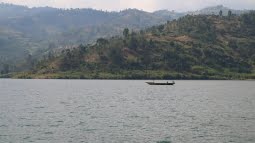
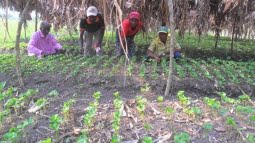

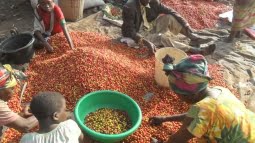
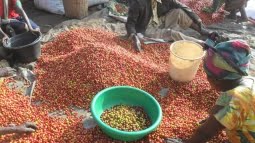
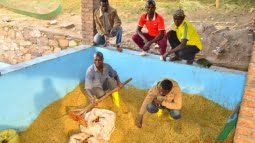




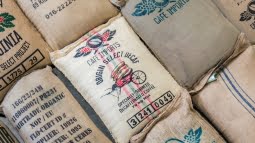
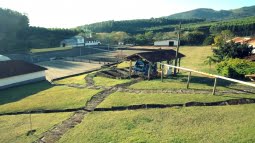
Reviews
There are no reviews yet.